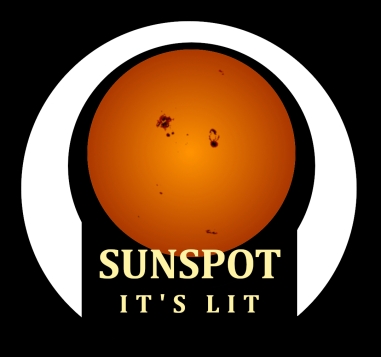Beginnings have the power to spark passion or curiosity. They might immediately connect a specific place and time with an emotional tone. The best offer a feeling, atmosphere, action, or image that is gripping.
Too often in commercially driven industries, this results in sensationalism. But meaning, thoughtfulness, emotions, or shadings of tone…that is, connection…are the impulses that draw audiences into the moment. A poem handles this differently than a flash piece, which handles an opening differently than a novel. The first photo, painting or frame presented in a gallery, series, or collection strives for the same intent. Openings contain a spark that promises to continue to burn.
For Sunspot Lit’s 2020 Inception contest, send your best opening. There are no restrictions on theme, category, or the length of the piece or collection from which the beginning comes. Word limit is 250 for prose, 25 words for poetry. Graphic novel entries should be the first page (unlimited number of panels on that page) with a maximum of 250 words…so, cut the number of panels in order to meet the word count, if needed. Visual art entries should be the first in a series, the first in a gallery lineup, the first photo in a themed collection, etc. Entries are limited to one image with up to 250 words to describe the series, lineup or collection.
For 2020, the entry fee has been reduced due to COVID’s economic impact.
Close: September 31, 2020
Prize: $250 cash, publication for the winner, publication offered to runners-up and finalists.
In addition to receiving the cash prize, the winner will be published. Select finalists will have the chance to be published. Sunspot asks for first rights only; all rights revert to the contributor after publication. Works, along with the creators’ bylines, are published in the next quarterly digital edition an average of one month after contest completion as well as the annual fall print edition.
Works should be unpublished except on a personal blog or website. Artists offered publication may display their pieces in galleries, festivals or shows throughout the publication contract period.
Enter as many times as you like through Submittable, but only one piece per submission. Simultaneous submissions are accepted, but please withdraw your piece if it is published elsewhere before the winner is selected.


 ublication is accepting fiction, poetry, nonfiction, scripts, screenplays, photography, and art until November 30. Translations and extremely long-form pieces are accepted. Submit
ublication is accepting fiction, poetry, nonfiction, scripts, screenplays, photography, and art until November 30. Translations and extremely long-form pieces are accepted. Submit  Sunspot Literary Journal wants your best fiction, nonfiction, or poetry opening. No restrictions on theme, category, or length of the piece from which the beginning is excerpted.
Sunspot Literary Journal wants your best fiction, nonfiction, or poetry opening. No restrictions on theme, category, or length of the piece from which the beginning is excerpted. Haruki Murakami’s 1Q84 meets Mark Helprin’s Winter’s Tale as a man battles sinister forces associated with a Native American peyote cult.
Haruki Murakami’s 1Q84 meets Mark Helprin’s Winter’s Tale as a man battles sinister forces associated with a Native American peyote cult.